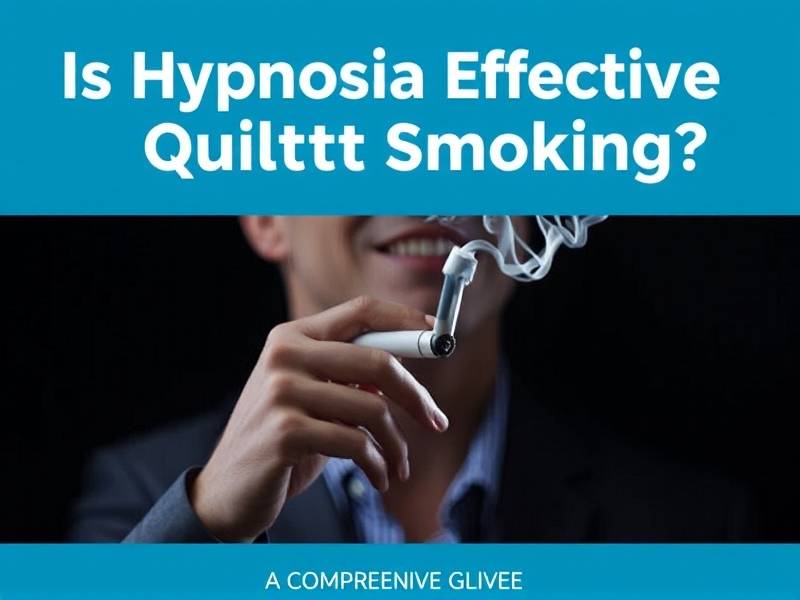Is Hypnosis Effective for Quitting Smoking? A Comprehensive Guide
Introduction
The quest to quit smoking is a challenging journey for many individuals. With countless methods available, from nicotine replacement therapy to cold turkey, it's no surprise that some people turn to hypnosis as a potential solution. But does hypnosis really work in helping smokers kick the habit? In this comprehensive guide, we'll explore the science behind hypnosis and its effectiveness in smoking cessation.
Understanding Hypnosis
Hypnosis is a state of heightened focus and concentration, often induced by a hypnotist using verbal cues and relaxation techniques. During hypnosis, individuals enter an altered state of consciousness where they are more open to suggestions and self-reflection.
The Hypnosis Approach to Smoking Cessation
Hypnotherapy for smoking cessation involves several steps:

1. Assessment
The therapist will first assess your smoking habits, including the number of cigarettes smoked daily and any triggers that may lead to relapse.

2. Hypnotic Induction
Using relaxation techniques, the therapist will guide you into a state of hypnosis.
3. Suggestion
Once in a hypnotic state, you'll be given positive suggestions aimed at reducing cravings and strengthening your resolve to quit smoking.
4. Reinforcement
Follow-up sessions may be necessary to reinforce the positive suggestions and address any challenges you may face during the quitting process.
Scientific Evidence
Research on the effectiveness of hypnosis for quitting smoking has produced mixed results. Some studies have shown promising outcomes, while others have found no significant difference between those who undergo hypnotherapy and those who do not.
A study published in the Journal of Consulting and Clinical Psychology found that participants who received hypnotherapy were more likely to quit smoking than those who received no treatment or alternative treatments.
Factors Influencing Success
Several factors can influence the success of using hypnosis for quitting smoking:
- Motivation: Individuals with strong motivation to quit are more likely to benefit from hypnotherapy.
- Triggers: Identifying and addressing triggers can make it easier to resist cigarette cravings.
- Support: Having a supportive network of friends, family, or professionals can provide additional motivation and guidance.
- Consistency: Regular follow-up sessions can help reinforce positive suggestions and increase success rates.
Conclusion
While there is scientific evidence suggesting that hypnosis can be effective for some individuals looking to quit smoking, it's important to approach this method with realistic expectations. Hypnotherapy should be seen as one tool among many in your arsenal for quitting smoking. Combine it with other strategies such as nicotine replacement therapy or counseling for the best chance of success.
Remember, the journey towards becoming smoke-free is unique for each individual. Explore all available options and consult with healthcare professionals before making any decisions about your health.
